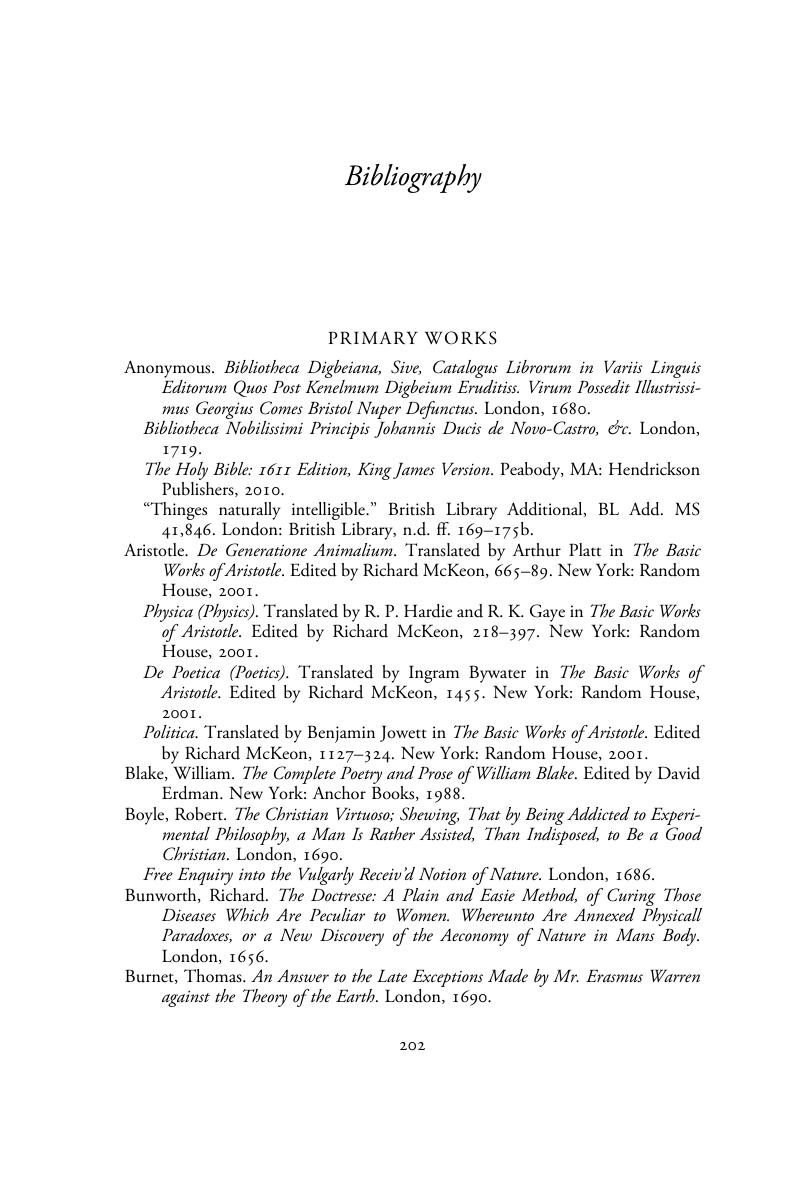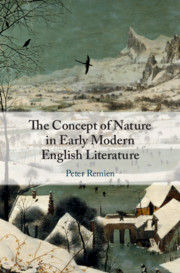Book contents
- The Concept of Nature in Early Modern English Literature
- The Concept of Nature in Early Modern English Literature
- Copyright page
- Dedication
- Contents
- Preface
- Acknowledgments
- Introduction
- Chapter 1 The Oeconomy of Nature in Seventeenth-Century England
- Chapter 2 Penshurst’s Parasites
- Chapter 3 The School of Beasts
- Chapter 4 Divine Husbandry
- Chapter 5 Labors of Luxury
- Epilogue
- Notes
- Bibliography
- Index
- References
Bibliography
Published online by Cambridge University Press: 28 January 2019
- The Concept of Nature in Early Modern English Literature
- The Concept of Nature in Early Modern English Literature
- Copyright page
- Dedication
- Contents
- Preface
- Acknowledgments
- Introduction
- Chapter 1 The Oeconomy of Nature in Seventeenth-Century England
- Chapter 2 Penshurst’s Parasites
- Chapter 3 The School of Beasts
- Chapter 4 Divine Husbandry
- Chapter 5 Labors of Luxury
- Epilogue
- Notes
- Bibliography
- Index
- References
Summary

- Type
- Chapter
- Information
- The Concept of Nature in Early Modern English Literature , pp. 202 - 219Publisher: Cambridge University PressPrint publication year: 2019



